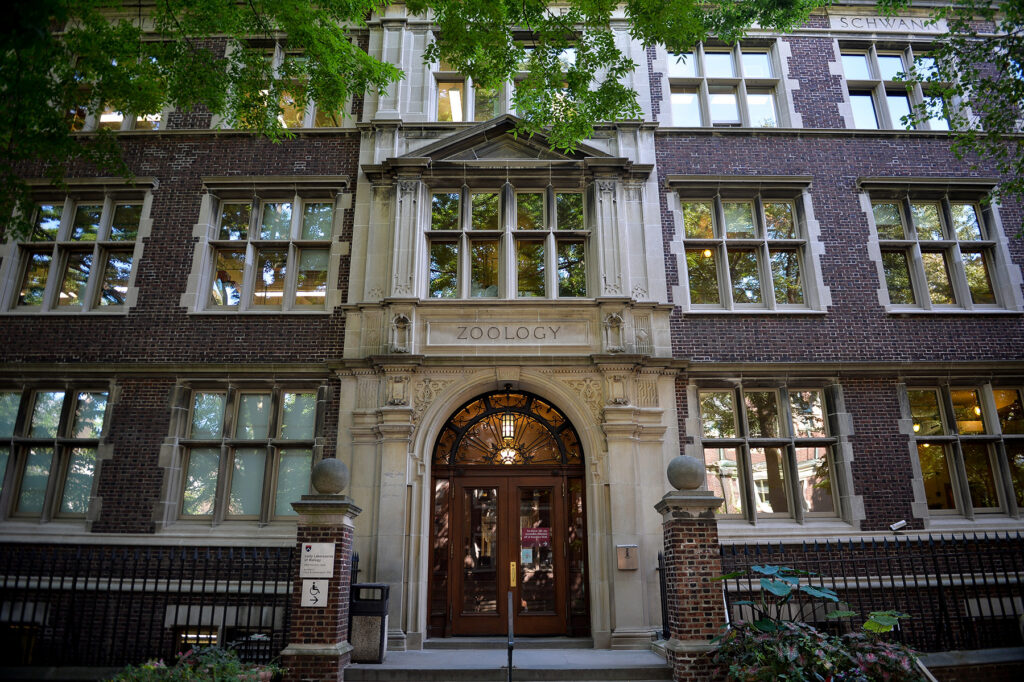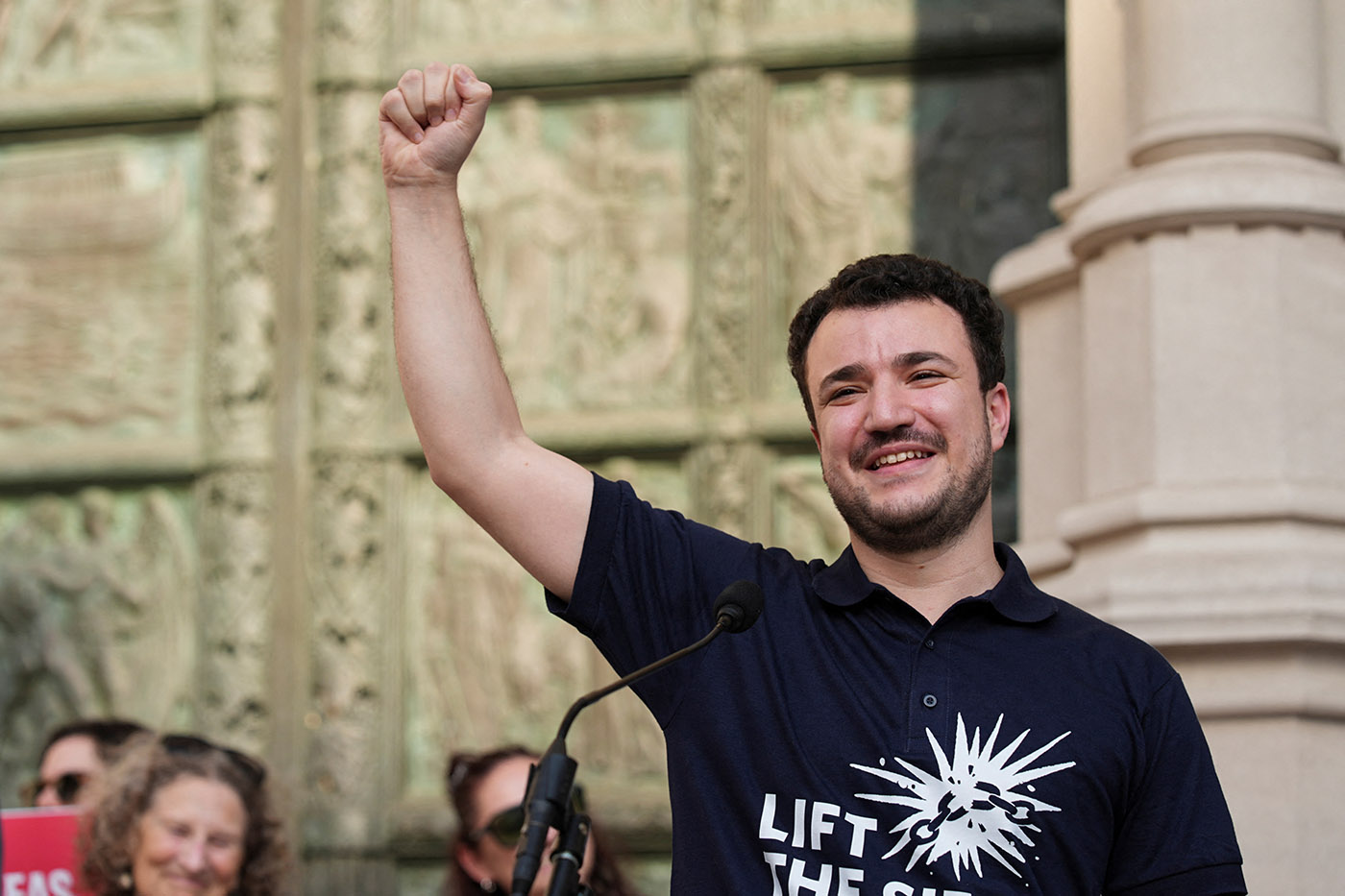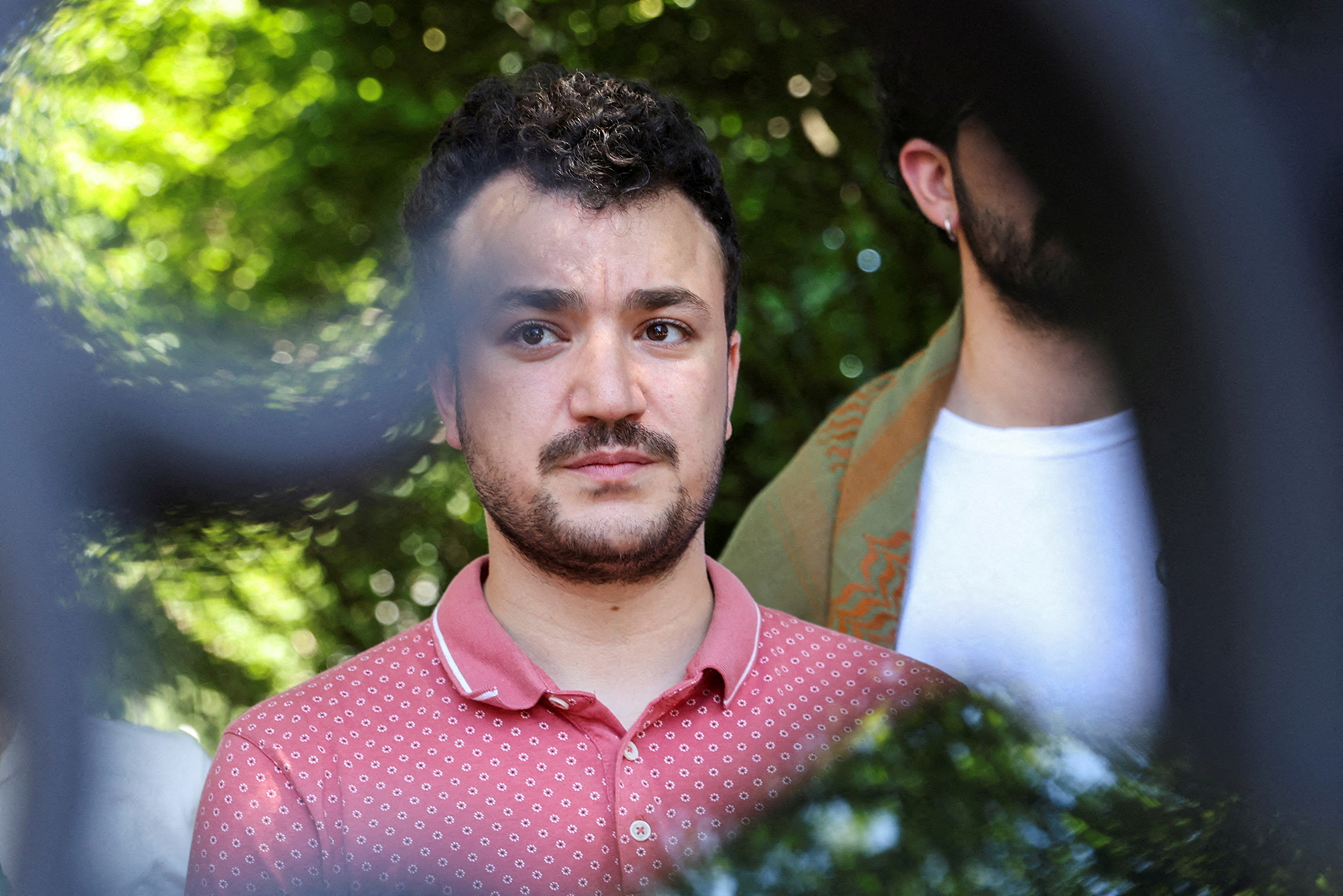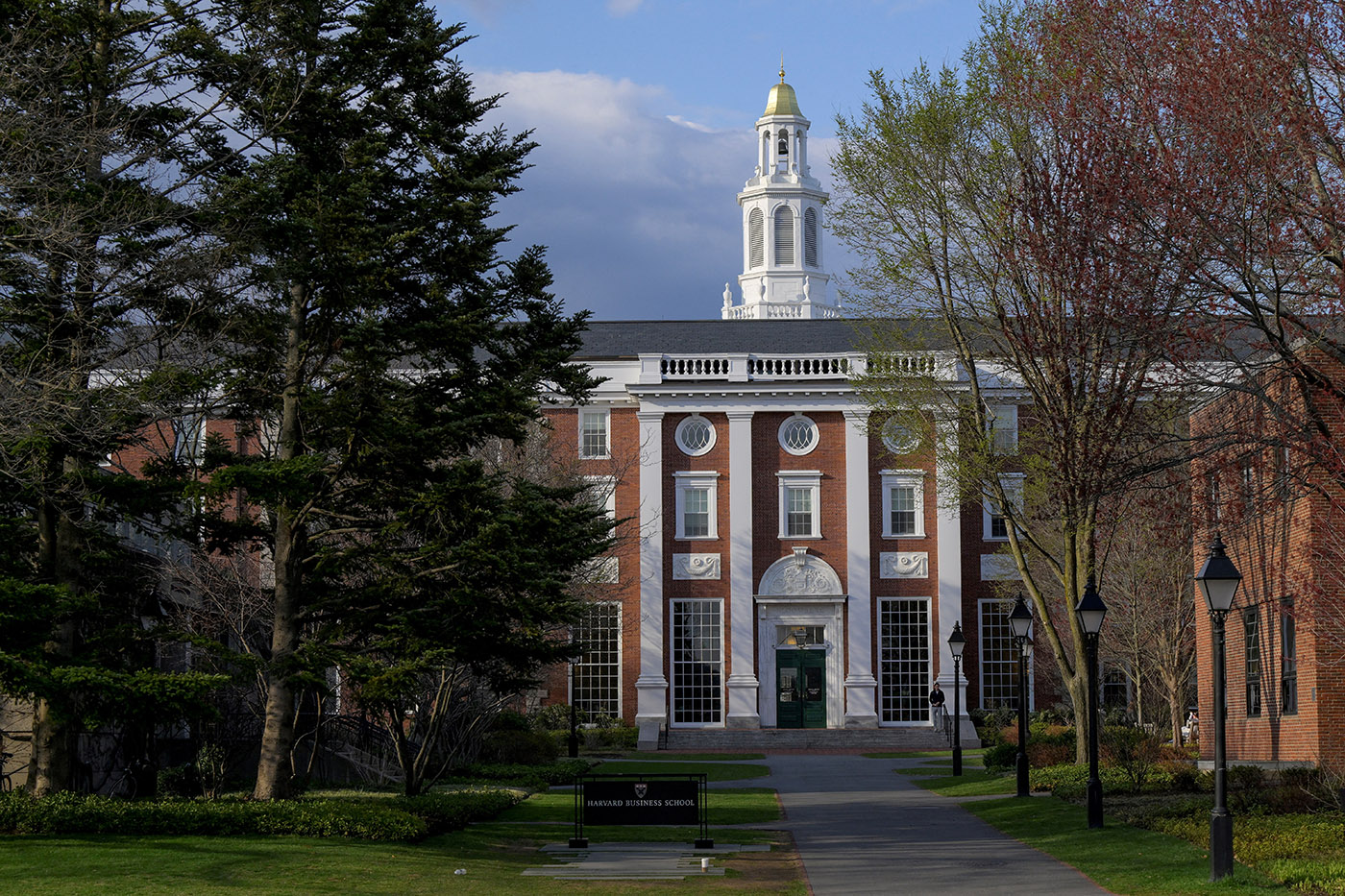Generations of Americans have held firm to a version of free speech that makes room for even the vilest of views. It’s girded by a belief that the good ideas rise above the bad, that no one should be punished for voicing an idea — except in rare cases where the idea could lead directly to illegal action.
Today, that idea faces competition more forceful and vehement than it has seen for a century.
On college campuses, a newer version of free speech is emerging as young generations redraw the line where expression crosses into harm. There’s a wave of students who have no tolerance for speech that marginalizes. They draw lines around language that leads to damage, either psychological or physical. Their judgments weigh the Constitution but also incorporate histories of privilege and oppression.
“We believe in a diverse set of thoughts,” says Kaleb Autman, a Black student at the University of Wisconsin whose group is demanding a zero-tolerance policy on hate speech. “But when your thought is predicated on the subjugation of me or my people, or to a generalized people, then we have problems.”
NEW GENERATION, EVOLVING IDEAS
A new understanding of free speech has been evolving on college campuses for years, marked by the introduction of safe spaces, trigger warnings and a rise in disruptive protests that silence speakers with offensive views. But the Israel-Hamas war and its rhetoric appear to be widening the fault lines and pushing students to demand that university leaders take a side between clashing versions of free speech.
It came to a head in December when leaders of three elite colleges were called to Congress to testify on campus antisemitism. With legalistic flourish, they took a stand for free expression as the Constitution and decades of case law define it, then faced weeks of backlash as opponents called them soft on antisemitism.
The fallout contributed to the Jan. 2 resignation of Harvard University President Claudine Gay, who faced mounting allegations of plagiarism that surfaced after the hearing. Her resignation followed the December ouster of Liz Magill of the University of Pennsylvania, who shifted her position on campus free speech amid the blowback.
Asked on Capitol Hill about balancing free speech and the safety of Jewish students, Magill told lawmakers that Penn’s approach is “guided by the United States Constitution, which allows for robust perspectives.” A day later, amid pressure from donors, she said Penn’s policies needed to be “clarified and evaluated.”
She suggested rules rooted in the Constitution don’t do enough to protect students in a world with “signs of hate proliferating across our campus and our world in a way not seen in years.”
Campuses across the nation have confronted similar tensions amid rising antisemitism and Islamophobia. Debate has raged over whether to police phrases such as “from the river to the sea” and “intifada” — often used as pro-Palestinian chants but lately also seen by some as calls for the genocide of Jews. Columbia University is among several institutions that recently suspended pro-Palestinian student groups, citing their “threatening rhetoric and intimidation.”
Those types of phrases, however some perceive them, are “clearly constitutionally protected,” says Erwin Chemerinsky, a law scholar and dean of the law school at the University of California, Berkeley, which was the cradle of the free speech movement in the 1960s. Yet on all sides of the issue, he says, today’s students want to quash speech they don’t like, regardless of its legality.
“What I always hear now is how, when students are upset or offended, they phrase it as, ‘I feel unsafe.’ And I think it’s so important that we separate out the campus’ duty,” he says. “It’s not our role to make them safe from ideas that they don’t want exposed to. But that line, I think, has gotten blurred.”
Yet as the U.S. Education Department opens dozens of federal civil rights inquiries around antisemitism and Islamophobia, college leaders face pressure to counter hateful speech even if it’s constitutionally protected, Howard Gillman, chancellor of the University of California, Irvine, said during a panel on campus free speech on Wednesday.
Says Gillman: “There is increasingly now a sense of obligation on the part of campuses to do something.”
DIFFERENT INSTITUTIONS, DIFFERENT APPROACHES
The shifting lines have become visible as colleges reach diverging conclusions on hate speech. After the congressional hearing, Stanford University and Cornell University declared that calls for genocide would indeed violate their conduct codes. Chiefs of Harvard and Penn, by contrast, told lawmakers it depended on context. New York Gov. Kathy Hochul told the state’s public universities that such a call should face “swift disciplinary action.”
Campus officials are being pulled in every direction from donors, alumni, students and politicians. But the latest battle has seen a reversal of sorts in the allegiances over free speech.
Republicans, who have long characterized colleges as liberal hotbeds that stifle free speech, are now calling on those institutions to curb speech seen as antisemitic. Colleges previously accused of ceding ground on free speech are suddenly emerging as its strongest defenders.
“The thing that I don’t know is, does anyone really have a principled position on this? Or is it just about the politics?” says Genevieve Lakier, a First Amendment scholar at the University of Chicago. She fears allegations of antisemitism are being used as a weapon to silence pro-Palestinian speech, and the biggest threats come from donors and legislators.
Still, she sees a changing tide on college campuses. Students are increasingly suspicious of free speech arguments they say have been used to empower some and oppress others. Their version of free speech leaves no room for certain racial slurs, Lakier says, and it introduces new rules around pronouns. Amid changing cultural views, certain kinds of language that were once tolerated are now seen as unacceptable, she says. “Except for a few outliers, that is, I don’t think, a bad thing.”
In nearly 20 years as president of Augustana College, Steven Bahls saw the generational change play out. When confronted with speech disputes in the past, he could settle it by applying the Constitution and explaining case law. At some point that wasn’t enough, and emotion came to dominate the debate.
“Students expect the college president to be on their side,” says Bahls, a lawyer by trade. “And you know, you can’t blame them. They’re paying a lot for their education. And to show students that you’re on their side doesn’t mean you have to agree with them politically.”
LOOKING AT THE WIDER PICTURE
Today’s moment carries echoes of past speech battles. The rise of shopping malls in the 1970s brought a slew of legal cases asking if mall owners could place constraints on expression on private property that functions as a public space (in general, they can, courts found). And college campuses have faced past battles of their own, including turbulent protests over the Vietnam War and the proliferation of speech codes that aimed to fight hate speech in the 1990s.
To students, it’s a complex question. Max Zimmerman says he is a firm supporter of the First Amendment. But in the aftermath of Oct. 7, he says it’s sometimes scary being a Jewish student at Towson University, near Baltimore. In a campus plaza known as Freedom Square, a public chalkboard meant to encourage civil discourse often displays anti-Israel phrases. Protesters have marched across campus chanting “from the river to the sea.”
“A phrase that has a hidden phrase, like calling for the mass genocide of the Jews, stuff like that shouldn’t be allowed on college campuses,” he says. “There needs to be a limit to what you can say.”
The university referred questions to a campus guide on free expression. It says: “Hateful or offensive speech that does not rise to the level of a true threat or unlawful harassment cannot be banned or punished.” Zimmerman says campus officials have responded by erasing the chalkboard twice a day.
There is no unified push to rewrite the rules of speech, and there’s no consensus among students, but polling reveals a shift. Students have become less likely to see freedom of speech as “extremely important,” and they prioritize inclusivity and free speech at nearly the same levels, according to a 2022 Knight Foundation poll. Black students especially said they were losing confidence that the First Amendment protects students like them, the poll found.
At the University of Wisconsin-Madison, a coalition of Black students demanded a total ban on hate speech in 2023 after a white student used racial slurs in a video that spread on social media. The university rejected the demand and said it couldn’t punish constitutionally protected speech.
“How are we supposed to be protected by a document that at one point would have allowed for the enslavement of me as a Black person?” says Autman, a senior in legal studies and sociology. “We should not wait for harm or violence to be inflicted for us to combat it.”
Private universities have wider power to limit speech because they aren’t bound by the First Amendment, although most commit to its principles. Public universities can place narrow limits on the time, place and manner of speech. Under federal civil rights law, all are required to take action against speech rising to the level of harassment based on someone’s race, religion or national origin.
For colleges, navigating the minefield of public discourse is trickier than ever. They are caught in the middle: Standing up for offensive speech could draw accusations of antisemitism, and they could be added to the list of schools facing federal civil rights investigations. Adding new limits to speech could bring its own legal challenges and threatens to further erode civil discourse.
William Adams, a former president of Colby College in Maine, says the solution lies somewhere between. The drift away from a classical view on free speech has left even progressive faculty fearful they will be punished for verbal missteps. At the same time, he says, colleges have a duty to meet the changing expectations of an increasingly diverse student body.
“Something has got to really be rearranged in these settings without a return to hard-nosed constitutionalism, because I don’t think that’ll work either,” he says. “We have to get to a place where there isn’t this tension.”
Tags



